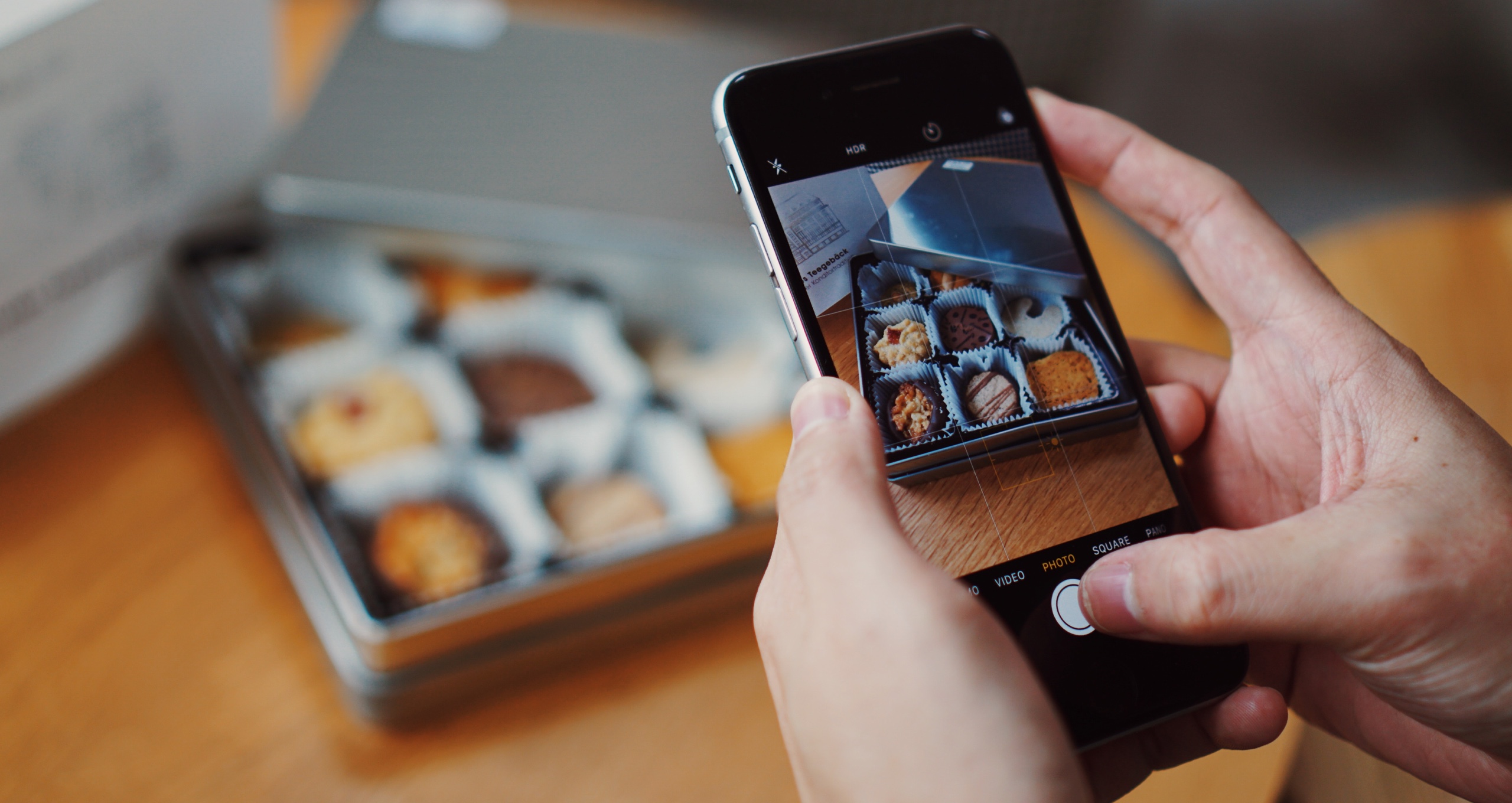Today, food plays a key role in our lives. Whether that be comfort food, bringing people together, reigniting a memory, or inspiring new experiences and recipes, food is at the heart of our everyday lives.
As the rise of social media allows us to dive into the food culture, many food and drink brands seek fresh and exciting ways to break through the noise. This is where foodie influencers and Instagrammers come into play. With a good eye for niche hospitality locations and mouth-watering food trends, the rise of influential user-generated content drives brand awareness and sales to brands they choose to feature on their social platforms.
This blog will delve into the rise of foodie influencers, how it’s evolving the food industry, and understand how they’re the perfect ingredient for food marketing and raising the profile of your food business.
What is a foodie influencer?
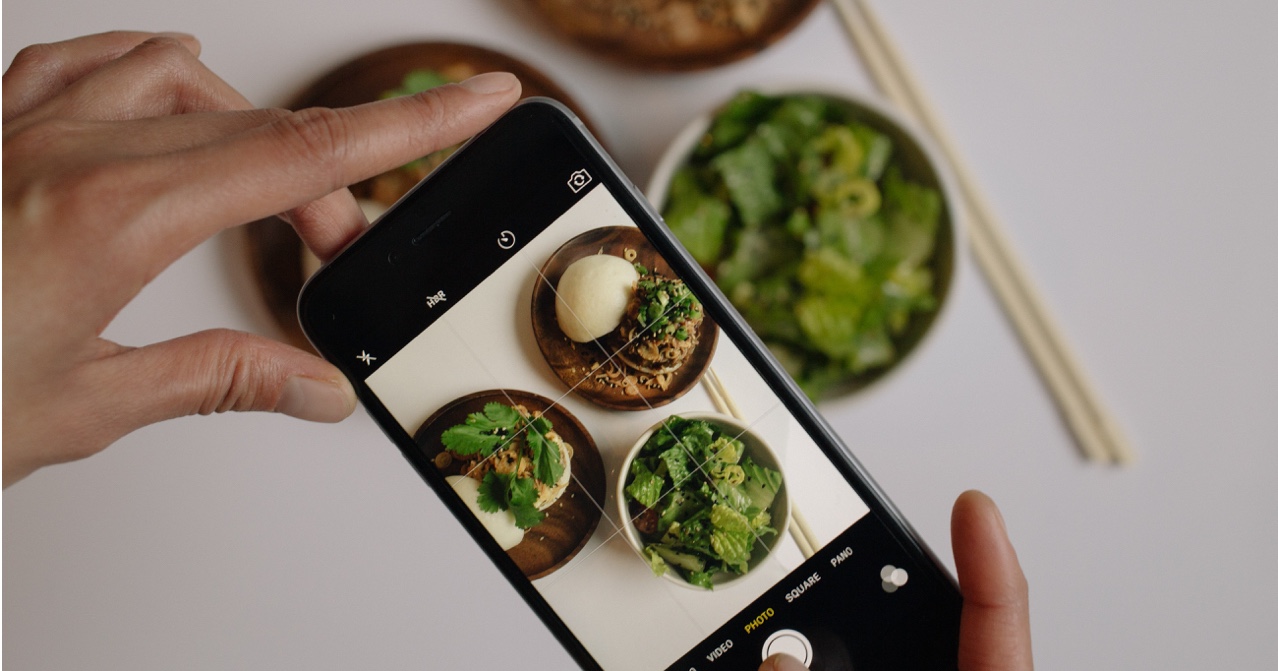
Foodie influencers are essentially another branch of user-generated content. Typically, they work as a digital creator using their content to reach and engage with their followers on social media platforms such as Instagram.
Influencers’ are considered a valuable resource for marketers aiming to attract a certain audience. A food influencer, in particular, focuses their work on any topic related to food. This might include recipes, great places to eat out, local cafe and restaurant food, and videos of the influencer’s daily meals.
Generally speaking, many foodie influencers work hard to create a strong, aesthetic Instagram feed to make their food experiences appear more enticing and vibrant. As a result of promoting the food on their social channels, this can springboard brand awareness, ultimately increasing sales.
The rise of foodie influencers and its impact on the industry
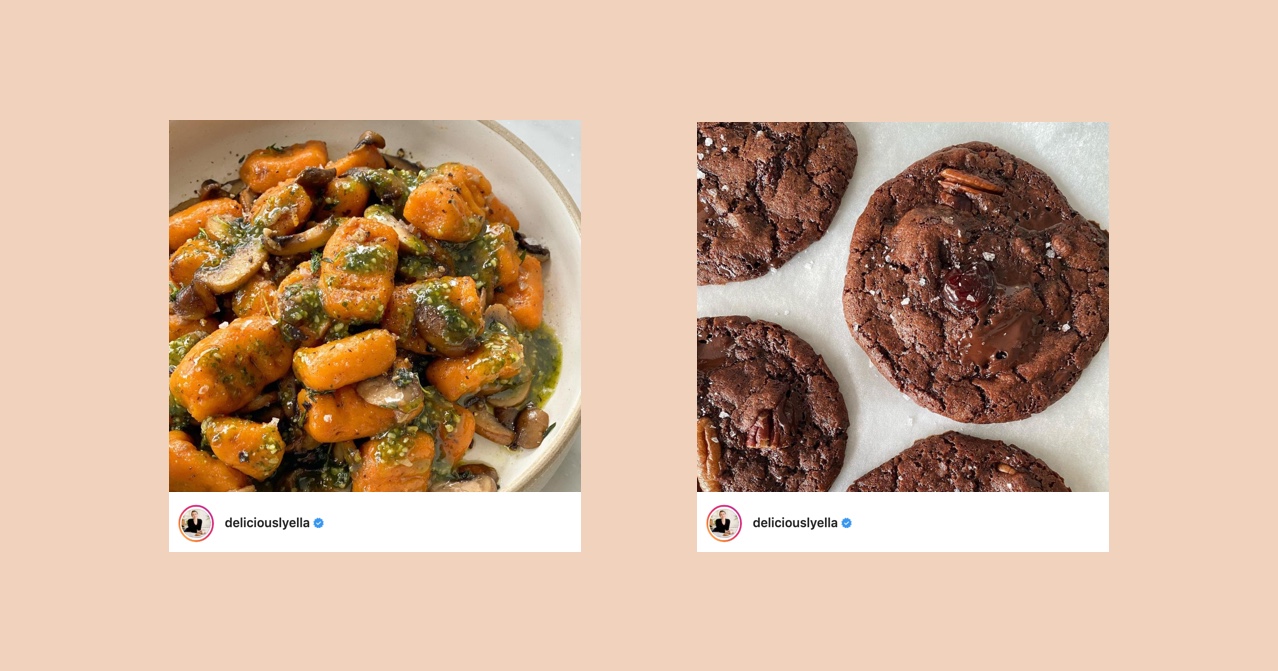
Going back a decade, there was no such thing as a foodie influencer. However, putting a shared love for food in contention with the power of social media, it was inevitable.
It’s difficult to recall a period when we didn’t take photos of our food before eating it, but this has now evolved into a legitimate means of interacting with customers and leveraging businesses. These brands not only frequently promote user-generated material on their social media platforms to demonstrate authenticity, but many also rely on foodie influencers to drive traffic to their business.
There are predominantly two categorisations of foodie influencers. One being active bloggers and the other being celebrities. For example, Jamie Oliver and Gordon Ramsey are big house names with Gordon having a combined following of 42.8 million across his social channels, making him the UK’s biggest food influencer. The professional chef not only has several cookbooks and TV shows across the UK and America, but he also shares his own mouth-watering creations as well as generating further popularity through hilariously ridiculing users’ recipes.
The fact that 71% of consumers are likely to buy products or services based on social media suggestions highlights just how strong the impact of foodie influencers is. Additionally, with each influencer having their own niche following and field of interest, a greater impact is created on that particular area.
For example, Deliciously Ella runs a family, plant-based food company and shares her own vegan favorites to her 2 million followers on Instagram. The majority of her content is targeted at vegans who are seeking healthy meat and dairy alternative meals without compromising on flavour. The best-selling author now has five books under her belt and her own food range, so she can have a transformative impact on brands who use her, from heightening your brand’s presence and increasing growth to developing engagement and amplifying your brand’s story.
Why should your business collaborate with a foodie influencer?
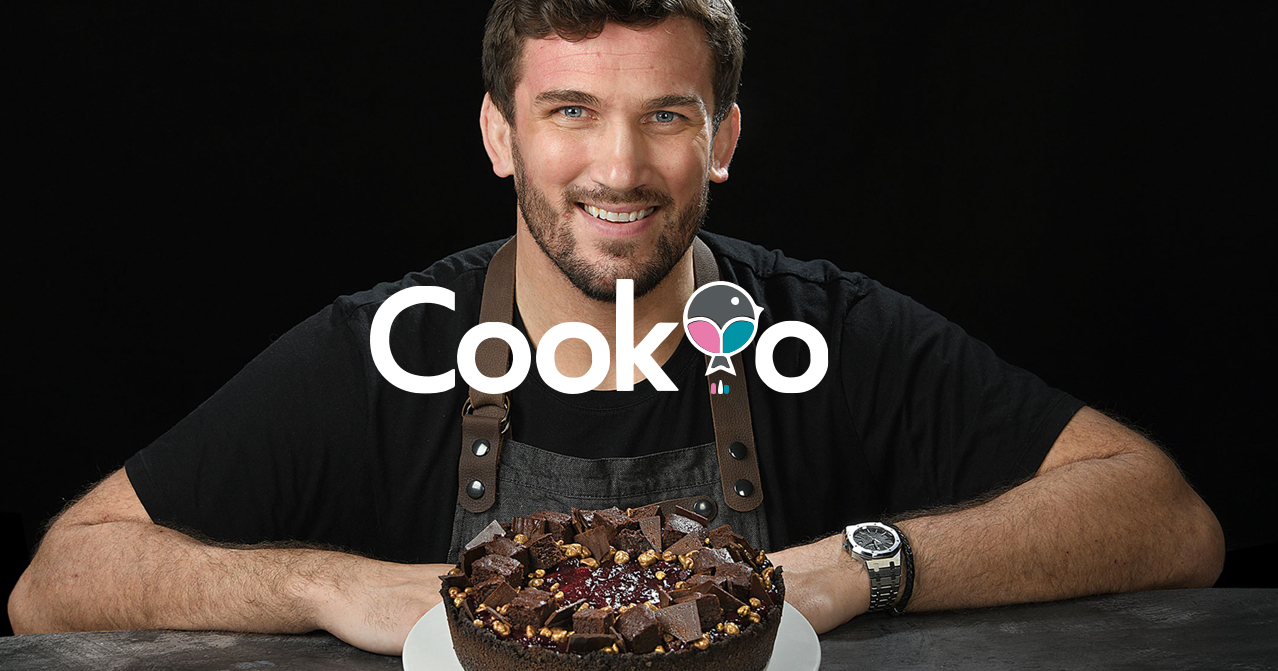
In this digital age, foodie influencers have become essential components of restaurant marketing. Collaborating with influencers to reach your target audience is an art form in and of itself. With a blend of strategy, innovation, common sense, and social media tracking, these collaborations can elevate your brand.
Not only can foodie influencers make a positive and direct impression on potential customers to draw them to restaurants on a regular basis, but they can also use marketing plans to promote one-time events. Further benefits to collaborations include the ability to boost your brand image, giving it more importance and staying current, and growing revenues in a creative and successful approach in a relatively short period of time.
A recommendation from a foodie influencer can have a significant impact. For example, an influencer’s actions can greatly raise the number of followers on a brand’s Instagram account. If the account content strategy is successful, these followers will most likely convert to consumers in a short amount of time.
Restaurant quality meal delivery service Cookoo, teamed up with Christian Day, an ex-rugby player and MasterChef 2020 finalist, to promote their brand as they entered the B2C market. Christian, who is now the brand ambassador, is not only the face of the company but is also active in the food production process. Cookoo’s marketing has been improved with the addition of an influencer, resulting in a successful launch campaign. Take a look at how Eat Marketing helped Cookoo elevate its brand further and reach a new digital-focused audience.
The recipe to success
The key with influencer marketing is to refrain from sounding commercial and instead focus on being as organic as possible so consumers buy into your content. Authenticity is a crucial factor in any business, so ensuring this is maintained is an effective way of increasing revenue.
Inspired by influencer marketing and not sure where to start? If you want to boost your food business, then get in touch with Eat Marketing and we’ll be happy to guide your business in the right direction.
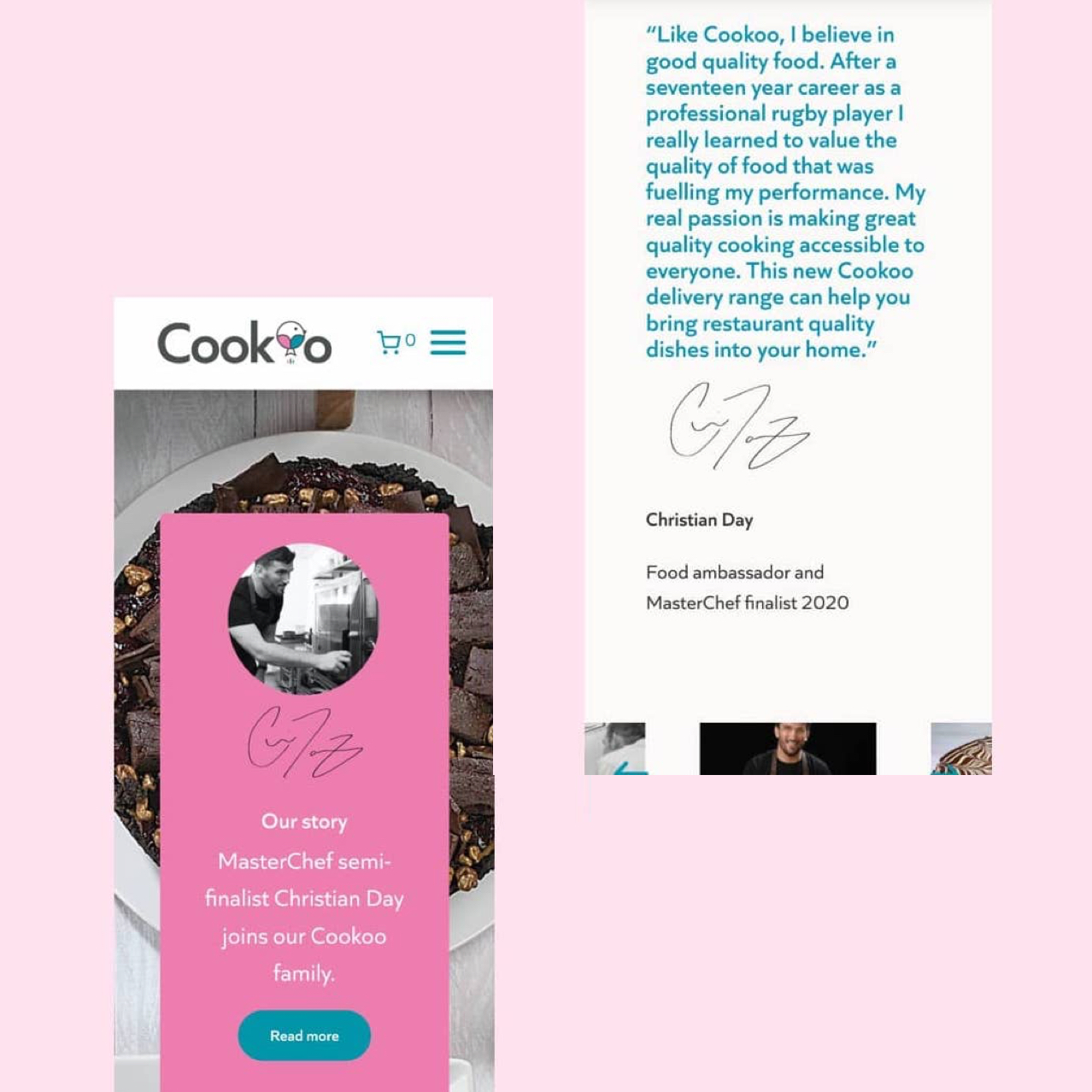
Elevate your brand with influencer marketing
Take a closer look at how Cookoo used influencer marketing to raise brand awareness in the B2C market.
Read the case study
